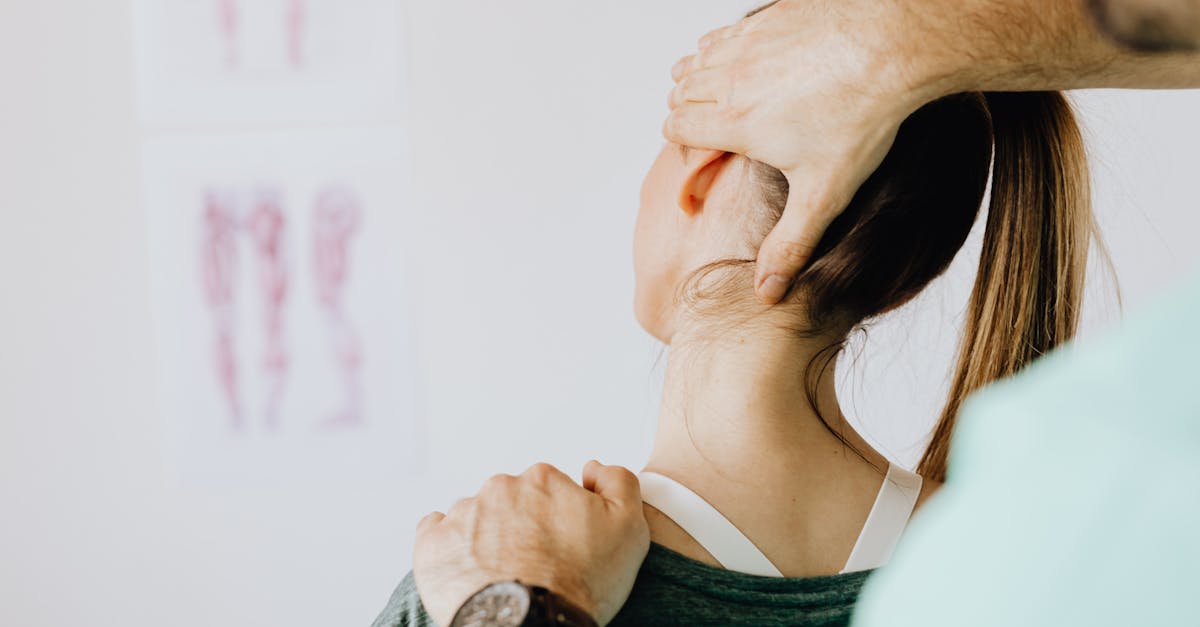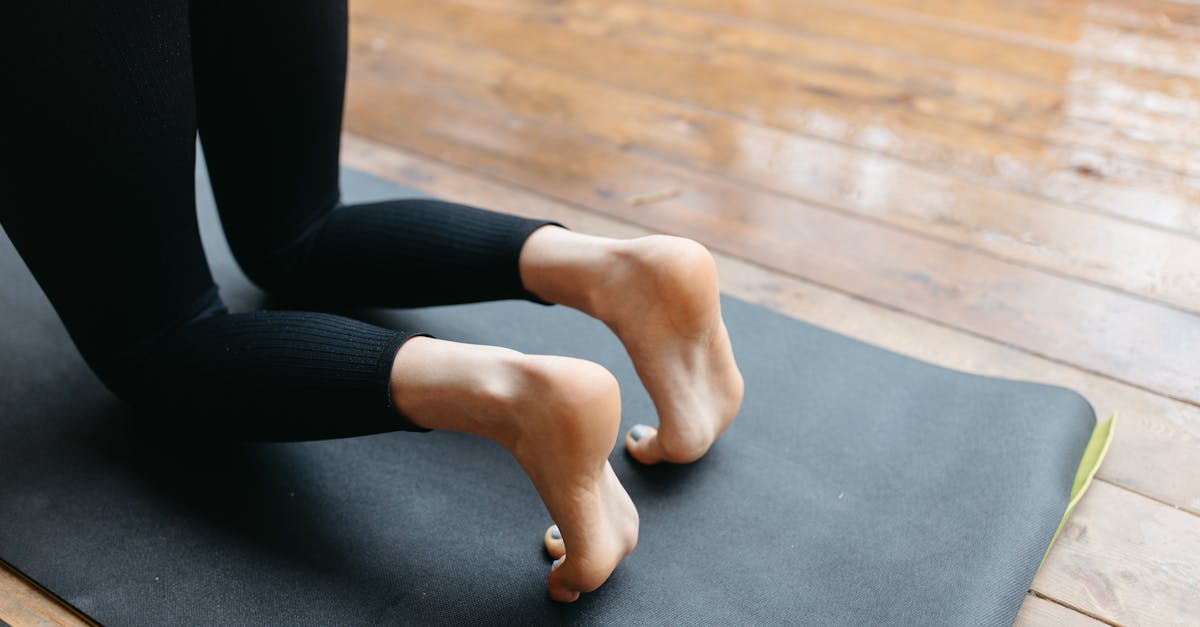|
In Short, waking up with neck pain is a common issue that can arise from poor sleep posture or underlying medical conditions. Understanding its causes leads to effective solutions for relief and prevention. Implementing these strategies can enhance your quality of life by improving comfort, mobility, and reducing muscle strain. By focusing on proper sleep alignment and incorporating gentle stretches, individuals can alleviate discomfort and promote better sleep health. |
Waking up with neck pain can be a distressing experience that significantly impacts daily life. This discomfort often arises from poor sleep posture, inadequate pillow support, or pre-existing medical conditions such as osteoarthritis and muscle strain. Understanding these causes is essential in developing effective strategies for relief and prevention. Recommended solutions include adjusting pillow height, practicing gentle stretches, and using warm compresses. By addressing these factors, individuals can improve their overall well-being and regain their freedom of movement.
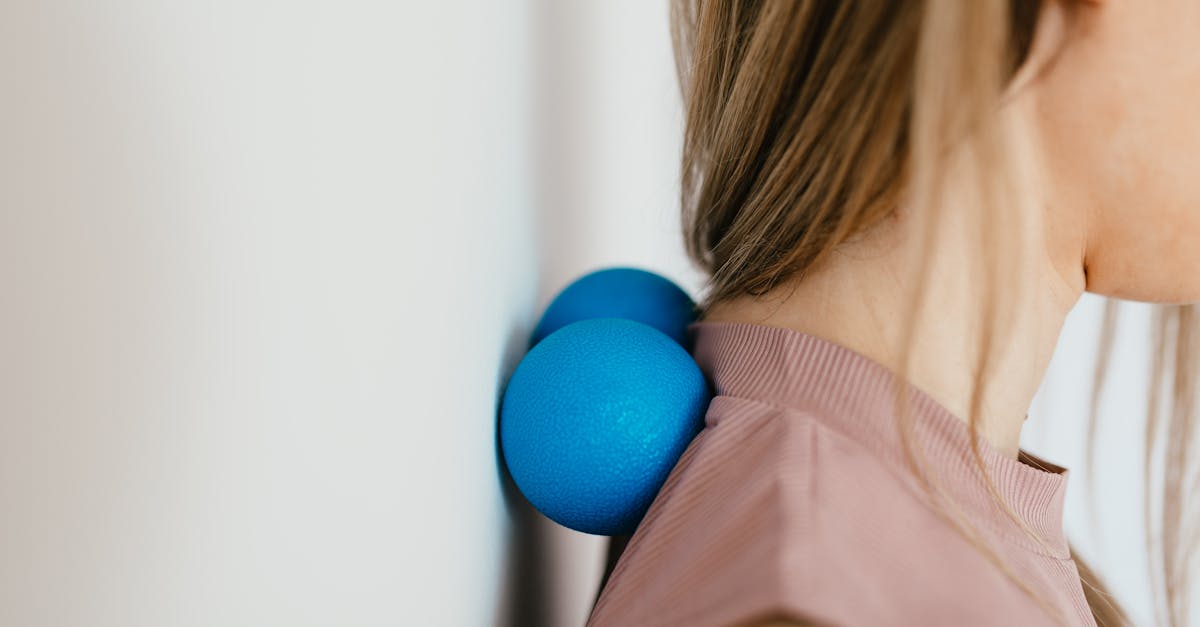
Welcome to Pulse Align: Your Journey to Enhanced Well-Being
At Pulse Align, we offer a gentle and innovative method to help you restore your body’s natural balance and posture through subtle, imperceptible pulses. This unique approach can be transformative, allowing your body to recalibrate itself, which often results in a sense of overall comfort and improved alignment. We believe that everyone deserves to experience a state of well-being that promotes relaxation and natural health.
Recalibrate Your Body Naturally
Our focus at Pulse Align is not on specific discomforts or conditions directly but on enhancing your body’s intrinsic ability to restore balance and symmetry. By prioritizing the natural recalibration of your muscle tone, many clients find themselves experiencing reduced tension and increased ease of movement. This process supports overall balance and posture, leading to a greater sense of well-being without the need for direct medical interventions.
Personalized Wellness Approach
We take pride in our personalized methods at Pulse Align, where every client’s experience is tailored to their unique needs. Throughout our practice, we’ve received numerous testimonials from clients who have reported notable improvements in tension, posture, and their overall sense of wellness. Families appreciate our safe and accommodating environment, which welcomes everyone, including children and expectant mothers, to explore the benefits of gentle, holistic wellness.
Explore Our Services and Locations
We invite you to learn more about how Pulse Align can be a part of your or your family’s wellness journey. Visit our website to find nearby Pulse Align clinics, including locations in La Prairie, Mont-Royal, Terrebonne, and more. By scheduling a consultation, you’ll gain insights into how our approach can enhance your overall quality of life. Remember, Pulse Align is here to support your wellness journey alongside your healthcare team, ensuring a holistic approach to your health.
Reclaim your well-being with Pulse Align’s safe, non-invasive, and family-friendly services—book your appointment online today!
- Causes:
- Poor sleep posture
- High or stiff pillows
- Previous injuries
- Conditions like osteoarthritis
- Muscle strain from awkward positions
- Poor sleep posture
- High or stiff pillows
- Previous injuries
- Conditions like osteoarthritis
- Muscle strain from awkward positions
- Solutions:
- Use ergonomic pillows
- Incorporate gentle stretches
- Apply warm compresses
- Adjust sleeping positions
- Consult a healthcare professional if pain persists
- Use ergonomic pillows
- Incorporate gentle stretches
- Apply warm compresses
- Adjust sleeping positions
- Consult a healthcare professional if pain persists
- Poor sleep posture
- High or stiff pillows
- Previous injuries
- Conditions like osteoarthritis
- Muscle strain from awkward positions
- Use ergonomic pillows
- Incorporate gentle stretches
- Apply warm compresses
- Adjust sleeping positions
- Consult a healthcare professional if pain persists
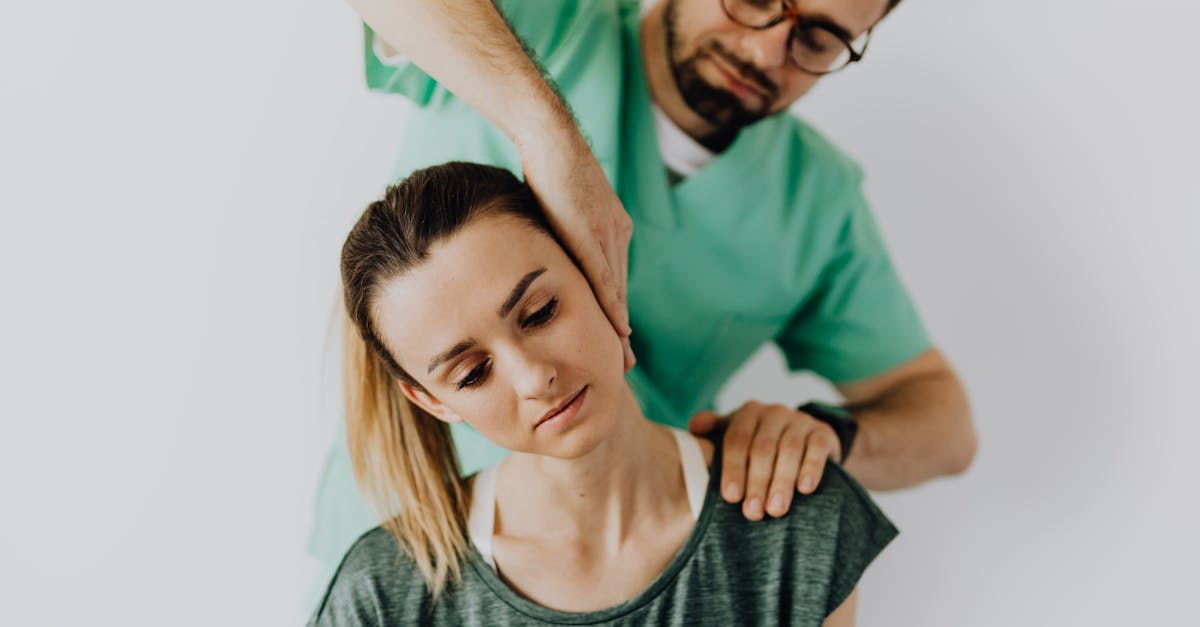
Waking up with neck pain is a common experience that can disrupt your day and diminish your quality of life. This discomfort often stems from several factors, including poor sleep posture, inadequate pillow support, or underlying medical conditions. Understanding the root causes of neck pain can help you implement effective solutions to alleviate discomfort and promote better overall well-being. This article will explore the common causes of waking up with neck pain, as well as practical strategies for relief and prevention.
Identifying the Causes of Neck Pain
Poor Sleep Posture
One of the leading causes of neck pain upon waking is poor sleep posture. Sleeping in positions that maintain the neck in a flexed or extended position for extended periods can strain the muscles and ligaments. In many instances, individuals may not be aware of their sleeping positions or how they affect their neck until they wake up feeling discomfort.
Inadequate Pillow Support
The type and height of your pillow significantly contribute to neck pain. A pillow that is too high or too firm can hold the neck in an unnatural alignment, while a pillow that is too low may not provide adequate support. It is essential to select a pillow that maintains the natural curve of the cervical spine and ensures a comfortable head-to-neck alignment.
Medical Conditions
Underlying medical conditions, such as osteoarthritis, cervical disc issues, or previous neck injuries, can amplify the discomfort experienced during sleep. Degenerative changes in the spine can lead to chronic stiffness, while conditions like nerve compression may create sensations of pain in the neck and shoulders, resulting in waking up feeling sore.
Effective Solutions for Neck Pain Relief
Adjust Your Sleeping Position
Improving your sleeping position can play a crucial role in alleviating neck pain. Opt for sleeping either on your back or side using a pillow that supports the natural curvature of your neck. Regularly changing sides while sleeping can also help prevent asymmetrical tension in the neck muscles.
Incorporate Stretching Exercises
Incorporating gentle stretching exercises into your morning and bedtime routines can relax tense muscles and enhance flexibility. Simple neck rolls, neck tilts, and shoulder shrugs can alleviate tightness and allow for improved mobility.
Utilize Heat and Cold Therapy
Applying warm compresses or cold packs can effectively reduce muscle tension and inflammation in the neck. Warmth helps relax tight muscles, while cold therapy can numb the pain and minimize swelling. Alternating between both methods may yield better results depending on the symptoms experienced.
Consult a Healthcare Professional
If neck pain persists despite implementing these strategies, consulting a healthcare professional is advisable. A thorough assessment can help identify underlying conditions requiring specialized treatment, such as physical therapy or medication for chronic pain management.
Promoting Holistic Health and Well-Being
Addressing neck pain goes beyond immediate symptom relief; it encompasses a holistic approach to well-being. Implementing lifestyle changes such as regular exercise, stress management techniques, and ergonomic adjustments during daily activities can contribute significantly to neck health. By embracing a comprehensive strategy aligned with the principles of Pulse Align, which emphasizes establishing neuromuscular health, symmetry, and the recalibration of the nervous system, individuals can foster a stronger connection to their bodies. This proactive approach not only empowers you to manage pain but also enhances your overall quality of life.
| Causes | Effective Solutions |
|---|---|
| Poor sleep posture | Adopt proper sleeping positions to maintain natural alignment. |
| Inadequate pillow support | Use a medium-firm pillow that supports the neck’s natural curve. |
| Muscle strain from awkward positions | Incorporate gentle stretches to alleviate tension in the neck area. |
| Previous injuries | Focus on natural recovery through body awareness and light activity. |
| Stress and tension | Engage in relaxation techniques to foster a calm and balanced mind. |
| Osteoarthritis | Emphasize regular moderate movement to enhance overall mobility. |
| Improper ergonomics during daily activities | Adjust workspaces to promote a posture-friendly environment. |
| Sleep deprivation | Establish a consistent sleep routine to support restful nights. |
| Dehydration | Maintain hydration to support bodily functions and muscle recovery. |
| High or stiff pillows | Evaluate pillow materials for comfort and suitable height. |

Transformative Wellness Journeys at Pulse Align
In the vibrant community of La Prairie, clients have shared remarkable stories of how Pulse Align has positively impacted their lives and well-being. Many have experienced significant improvements in their neck health, particularly after waking up with neck pain. The unique approach at Pulse Align, centered around supporting the body’s natural ability to recalibrate and restore balance, resonates deeply with those seeking to enhance their quality of life.
A client from Mont-Royal expressed, “Since starting my journey with Pulse Align, I’ve noticed not only a reduction in my morning neck pain but also a newfound sense of vitality throughout my day. The gentle pulses have allowed my body to regain its natural equilibrium, leaving me feeling refreshed and ready to tackle each morning.” Such testimonials reflect the profound effects that this holistic recovery method can offer.
Residents of Terrebonne have also embraced this approach, with many highlighting how the personalized care they received has contributed to their physical comfort and overall well-being. One individual remarked, “The team at Pulse Align truly understands the connection between mind and body. Their focus on holistic recovery has guided me toward a more balanced life, alleviating the stiffness I once faced each morning.”
In areas such as Chicoutimi and Châteauguay, clients have found the supportive environment at Pulse Align essential in their wellness journeys. A satisfied client stated, “The gentle techniques provided have transformed the way I experience my body. I wake up feeling so much more aligned and free, and I appreciate the emphasis on helping me regain my health naturally.” This sentiment is echoed by many who have sought solutions for neck pain after sleeping.
Those in nearby Saint-Jérôme and Deux-Montagnes have also reported transformative experiences. “I had struggled with neck discomfort for years, but with the support from Pulse Align, I feel empowered to manage my health better. My neck pain has decreased significantly, and my overall mobility has improved,” a local resident shared, illustrating how Pulse Align’s services can redefine community wellness.
No matter where you are, Pulse Align is dedicated to supporting you on this journey. By integrating their techniques into local healthcare, they ensure that families in Sainte-Marie and Les Escoumins find comprehensive, personalized solutions to enhance their well-being. For more information about how to begin your own wellness journey, visit our Our Clinics page to find a location near you.
Waking up with neck pain is a troubling experience that affects many individuals, disrupting their daily lives and overall quality of life. Understanding the myriad causes behind this discomfort is essential for identifying effective solutions and regaining a sense of well-being. Various factors can lead to neck pain upon awakening, ranging from sleeping positions to pre-existing medical conditions. Often, poor sleep posture, including sleeping with the neck in a twisted or awkward angle, can create significant strain on the neck muscles.
Additionally, the type of pillow used during sleep plays a critical role in maintaining spinal alignment. A pillow that is too high or too firm may cause the neck to remain flexed throughout the night, while a pillow that is too low may not provide adequate support. This mishandling of neck alignment can lead to stiffness and discomfort, making it imperative for individuals to evaluate their sleeping arrangements.
Underlying medical conditions may also contribute to morning neck pain. Conditions such as osteoarthritis or degenerative disc disease can lead to chronic neck discomfort. Previous injuries, notably whiplash sustained in accidents, can exacerbate the situation as they affect the muscles and soft tissues surrounding the cervical spine. Identifying these contributing factors is crucial in formulating a comprehensive treatment plan that addresses both the symptoms and root causes of the discomfort.
One prominent figure in the field of pain management is Dr. Sylvain Desforges, an expert in osteopathy, naturopathy, and manual medicine, who serves as the founding president of TAGMED clinics. With a profound commitment to healthcare innovation, Dr. Desforges specializes in managing chronic pain, particularly within the context of conditions that commonly trigger neck problems. His approach integrates advanced technologies such as spinal decompression, laser therapy, and shockwave therapy to provide patients with effective, evidence-based care.
Dr. Desforges is dedicated to optimizing the health and well-being of his patients through personalized treatment plans. His mission extends beyond merely alleviating pain; it encompasses empowering individuals to regain control over their lives by enhancing their overall physical function. By collaborating with his patients and ensuring they understand their conditions, he leads them toward effective solutions tailored uniquely to their needs.
For patients experiencing neck pain upon waking, Dr. Desforges emphasizes the importance of holistic approaches. This involves assessing various lifestyle factors such as sleep hygiene, ergonomic considerations during daily activities, and stress management techniques. Gentle stretching exercises, appropriate sleeping positions, and the use of supportive pillows can mitigate discomfort and promote better neck health. When necessary, patients are guided towards professional intervention to facilitate further healing.
The TAGMED clinics, located in Montreal, Terrebonne, and Mont-Royal, embody Dr. Desforges’s philosophy of patient-centered care. With a focus on chronic pain management and innovative therapeutic techniques, the clinics offer a comprehensive approach that combines manual medicine and neuromuscular rehabilitation. This multifaceted strategy aims to provide patients with significant improvements in comfort and mobility, allowing them to reclaim their daily functions.
In conclusion, waking up with neck pain is a prevalent concern that requires thorough investigation to uncover the underlying causes. Through the expert guidance of professionals like Dr. Sylvain Desforges, individuals can find solace in the availability of effective solutions designed not just to alleviate pain but to enhance overall quality of life. Understanding both the causes and potential treatments for neck discomfort is essential in paving the way toward recovery and holistic well-being.
How TAGMED’s Neurovertebral Decompression Technology Can Improve Chronic Pain Conditions
Mechanism of Action
The neurovertebral decompression technology offered by TAGMED operates by applying a controlled and progressive traction force to the spine. This method effectively increases the space between individual vertebrae, which in turn reduces the pressure exerted on the intervertebral discs and nerve roots. By creating this additional space, fluid circulation within the targeted area is enhanced, allowing essential nutrients and fluids to access and nourish the affected regions. The decompression process facilitates the drawing in of nutrients and improves the metabolic activities within the discs, contributing to inflammation reduction and effectively alleviating pain.
Specific Advantages
This non-invasive approach offers significant benefits for those experiencing chronic pain associated with conditions such as herniated discs, bulging discs, and moderate to severe spinal or foraminal stenosis. The technology aims to relieve pressure on nerve structures and optimize the circulation of fluids around the discs, thus promoting a more rapid recovery. As patients benefit from reduced discomfort and improved mobility, many report a remarkable enhancement in their quality of life. The procedure’s effectiveness lies in its ability to alleviate chronic symptoms without the need for surgical interventions or reliance on pain medications, making it a suitable option for those seeking less invasive alternatives.
Comparison with Other Treatments
When compared to conventional treatments typically used to manage neck pain, such as painkillers, corticosteroid injections, surgery, or traditional physiotherapy, TAGMED’s neurovertebral decompression stands out due to its unique advantages. Unlike invasive surgical options that can carry significant risks and longer recovery times, this technology is designed to minimize risks while promoting self-healing. Furthermore, patients are often pleased to find that they can experience faster recovery and substantial pain relief without the side effects associated with pharmaceuticals. This positions the neurovertebral decompression technique as an appealing alternative for individuals seeking effective solutions for their chronic pain challenges.
Case Studies and Testimonials
Numerous patients have successfully utilized TAGMED’s neurovertebral decompression to manage their chronic pain conditions. For example, one patient, after suffering from intense neck pain due to a herniated disc, reported a significant decrease in discomfort following a series of treatment sessions. “The relief I felt was immediate and sustained; I resumed activities I thought I had lost forever,” they stated. This kind of feedback echoes the transformative potential of this innovative approach.
Another patient shared, “I was initially skeptical, but my experience with neurovertebral decompression changed everything. I no longer feel the need to rely on pain medications and can participate in my daily life without chronic pain.” Such testimonies reflect how effective this method can be in restoring health and a sense of normalcy for patients burdened by chronic pain.
Waking up with neck pain is a prevalent issue that many individuals face, often stemming from various underlying factors. Understanding the causes of this discomfort is essential in addressing and alleviating it effectively. Common reasons for morning neck pain include poor sleep posture, inappropriate pillow height, and existing medical conditions such as osteoarthritis. These factors can contribute to muscle tension, leading to stiffness and pain upon waking.
To combat neck pain effectively, it is crucial to adopt practical strategies. Evaluating and adjusting your sleeping posture can significantly impact your overall comfort. Utilizing an ergonomic pillow that supports the natural alignment of your neck and spine will reduce strain during sleep. Furthermore, incorporating gentle stretches and neck exercises into your daily routine can enhance muscle flexibility and strength, promoting overall well-being.
In addition to these personal adjustments, heat and cold therapies can offer immediate relief from discomfort. Applying warm compresses can help relax tight muscles, while cold packs may reduce inflammation. For persistent issues, seeking professional help from healthcare specialists may provide tailored guidance, enabling individuals to address chronic neck pain effectively.
Embracing a holistic approach to health and wellness, including managing stress and maintaining proper posture throughout the day, can contribute greatly to reducing neck pain. By understanding the root causes of pain, individuals can implement targeted solutions, reclaiming their freedom of movement and enhancing their quality of life. With these strategies, waking up without neck pain becomes an attainable goal, allowing for healthier, more enjoyable mornings.
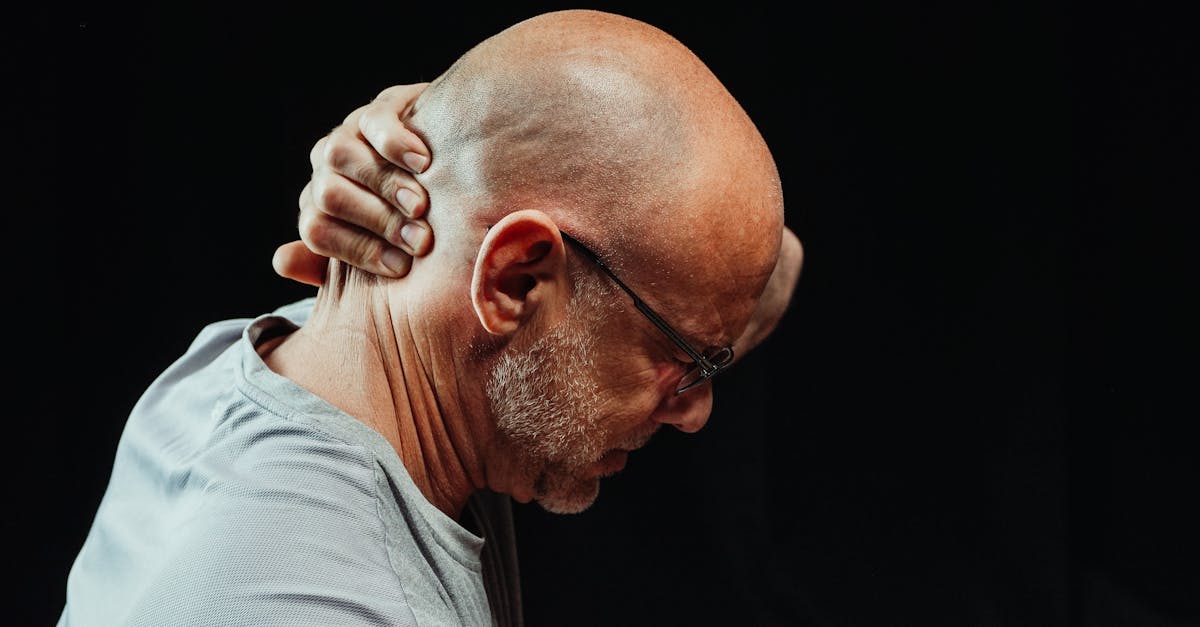
Do you suffer from discomfort that responds little or not at all to conservative treatments?
If waking up with tension or discomfort in your neck has become an unwelcome start to your day, you’re not alone. Many individuals find themselves seeking non-traditional solutions to achieve bodily comfort and fluid movement. At Pulse Align, we offer a non-invasive, innovative approach to help restore the body’s natural balance and posture through gentle, imperceptible pulses. This technique can effectively lead to a reduction in muscle and joint tension, providing a natural alternative for those looking to address daily discomforts.
Our focus at Pulse Align is not on diagnosing or treating any specific discomfort directly. Instead, we help the body recalibrate itself naturally, often resulting in remarkable improvements in overall comfort and posture. This holistic focus enables our clients to experience enhanced balance and support in their daily lives, leading to a better sense of overall well-being.
At Pulse Align, we pride ourselves on our personalized approach to every client. Many individuals have shared their transformative stories, highlighting not only improvements in neck and back tension but also an uplifted sense of overall wellness. Clients have reported feeling lighter and more aligned after their sessions with us, reinforcing our dedication to fostering an environment where natural recovery can flourish. Our commitment to tailoring services to meet each individual’s needs helps them navigate their wellness journeys with greater ease.
We invite you to explore how Pulse Align can complement your path to wellness. Visit our website to find more information about our services, locate nearby clinics in La Prairie, Mont-Royal, Terrebonne, and beyond, and book a consultation for yourself or your family. Remember, Pulse Align works alongside your existing healthcare team, integrating seamlessly without replacing any current practices. Discover how our non-invasive, family-friendly approach can enhance your well-being and lead you to a more comfortable and balanced life. We encourage you to book an appointment online today.
To learn more about our services and book an appointment, visit our website: Pulse Align.
Frequently Asked Questions
Neck Pain
Do breathing exercises help?
Proper breathing reduces stress and muscle tension, helping alleviate neck pain.
What is chronic neck pain?
It’s neck pain lasting more than three months, often related to mechanical, postural, or degenerative issues.
What are common causes of neck pain?
Frequent causes include poor posture, stress, muscle tension, cervical osteoarthritis, herniated discs, or trauma.
When should I see a doctor for neck pain?
If the pain lasts more than a few weeks, comes with dizziness, arm tingling, or severe headaches, seek medical help.
Can I do stretching exercises at work?
Yes, taking breaks, gently rotating your neck and shoulders can reduce accumulated tension.
Is swimming helpful?
Yes, swimming improves posture, strengthens back muscles, and can relieve cervical tension.
Are cervical manipulations dangerous?
If performed by a qualified professional, they are generally safe, though there is a slight risk of complications.
Do strengthening exercises help?
Yes, strengthening the neck and shoulder muscles can stabilize the cervical region and reduce pain.
Does lack of sleep worsen neck pain?
Yes, inadequate sleep leads to muscle fatigue and increases sensitivity to pain.
Do ergonomic pillows help?
Yes, a suitable pillow supports the neck’s natural curve, reducing tension and neck pain.
Sophie Gambert understands that neck pain is far more than a physical ache—it’s a roadblock to living the life you love. As a Neck Pain Awareness Advocate at Pulse Align, she is committed to shedding light on the underlying causes, sharing practical relief strategies, and offering genuine support to readers seeking to reclaim their freedom of movement. With a warm, empathetic voice and a keen eye for the latest in pain management research, Sophie leads conversations that uplift, educate, and inspire. She believes that every individual deserves to feel heard, understood, and guided toward healing, one step at a time.
Medical Disclaimer
The information and advice provided on this site do not replace the advice, diagnosis, or treatment of a healthcare professional. Please note that the author of this article is neither a doctor nor a specialist in a medical specialty as defined by the Collège des médecins du Québec. Manual medicine, functional medicine, and sports medicine as described on this site exclude any medical treatment or diagnosis made by a doctor or medical specialist. Always consult your doctor for any medical questions. For more details, please read our complete Legal Notice.

